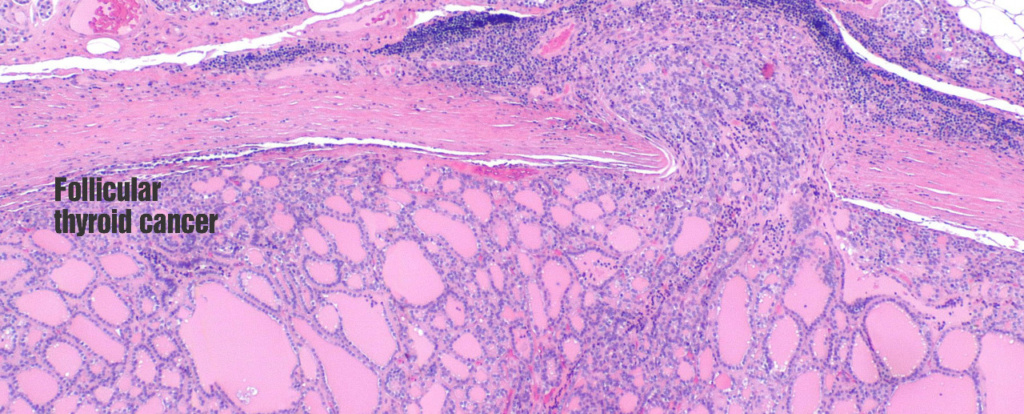The thyroid gland is located at the base of the neck and its main function is to produce hormones that regulate our body weight, blood pressure, heart beat as well as body temperature.
Thyroid cancer occurs when there is abnormal growth of cells in the thyroid. Although the person affected by thyroid cancer might not experience symptoms early on, signs in the later stages can include inflammation in the neck, problems in swallowing and alterations in voice.
Thyroid cancer cases are becoming more common nowadays. Some types of thyroid cancers progress slowly while others increase at an alarming pace. However, the positive aspect is that small thyroid cancers respond quite well to treatments.
There are various types of thyroid cancers. These are:
- Follicular thyroid cancer: This is a rare type of thyroid cancer that mostly affects people over 50 years of age. It mostly spreads to the lungs and bones and not in the lymph nodes of the neck.

- Hurthle cell thyroid cancer: This type of thyroid cancer advances rapidly and can spread in various parts of the body other than the neck.
- Papillary thyroid cancer: The most common type of thyroid cancer, papillary thyroid cancers are generally small and can be treated well. People aged between 30 to 50 years are mostly affected by this cancer.
- Medullary thyroid cancer: This is an uncommon type of cancer that starts growing in thyroid cells known as C cells. In certain cases, medullary thyroid cancer can be a result of a gene called RET that is transferred to children from the parents.
- Anaplastic thyroid cancer: This type of cancer grows aggressively and can be extremely difficult to treat. Anaplastic cancer generally affects people over 60 years of age and causes inflammation in the neck that progresses quickly making it difficult to breathe or swallow.
- Thyroid lymphoma: This cancer starts in the immune system cells of the thyroid and is one of the rare types.

As mentioned previously, there are some symptoms that may show up as your thyroid cancer progresses. These can be: discomfort in the neck and throat apart from hoarseness in the voice. Formation of a lump can also be felt in the neck and the lymph nodes in the neck get swollen. It is imperative to get in touch with your doctor in case you experience any such symptoms.
Treatment for thyroid cancer depends on the type, location and severity of the disease. Some of the surgical options include: thyroidectomy (complete removal of the thyroid), thyroid lobectomy (partial removal of the thyroid) and lymph node dissection (removal of lymph nodes situated in the neck). Radioactive iodine treatment can also be recommended by your cancer specialist to kill thyroid cancer cells that still remain in the body after surgery.
Advanced thyroid cancer treatment can require additional treatment options that involve radiation therapy, chemotherapy, targeted drug therapy and radiofrequency ablation.
FOR MORE INFORMATION AND APPOINTMENT CALL:
0172-5088883, +91 9464343434
























